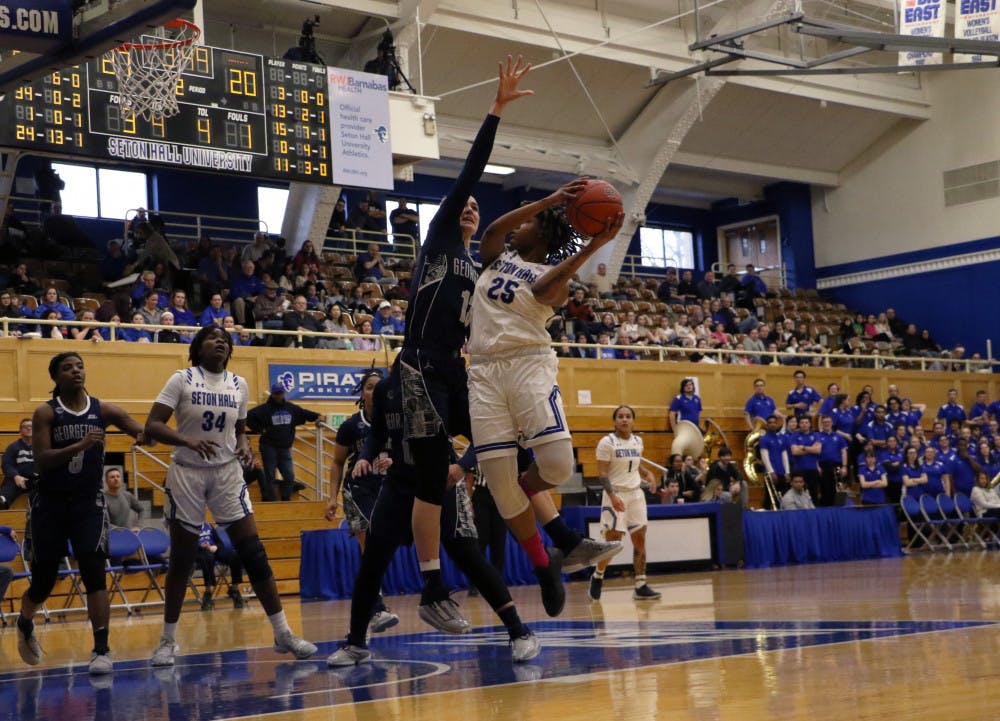The Seton Hall community united in song and prayer in support of the Catholic church, Benedict XVI and the papal office on Thursday, Feb. 28 at the University's Main Chapel of the Immaculate Conception.
The Holy Hour, an hour spent in Eucharistic adoration in the presence of the Blessed Sacrament, finds its roots in the Gospel of Matthew. It was cosponsored by the Office of Mission and Ministry, the Fellowship of Catholic University Students and St. Paul's Outreach. The Rev. Monsignor C. Anthony Ziccardi presided over the Holy Hour and read prayers specifically for Benedict XVI and the papal office.
The Holy Hour was planned to match the exact hour of the office was relinquished. In an official release by the Vatican, the Pope was to resign on February 28, 2013 at 2:00 p.m. (8 p.m. Rome local time).
The Rev. Monsignor Robert J. Wister, professor of church history, gave a homily to commemorate the legacy of Benedict XVI.
"We gather together not for a moment of sadness, but thanks for the service and life of Pope Benedict," Wister said.
He also regarded Benedict XVI as the "greatest theologian of our century, yet accessible to all."
He expressed the two ways Benedict XVI has inspired Christians worldwide through the "Office of Peter" and "Role of Shepherd." Throughout the homily, Wister described the pope as "profound teacher and theologian, exemplar of piety and deep spiritual life."
After a moment of reflection, students sang a variety of hymns to instill hope and faith in the coming days of transition. The music was blend of old Latin Eucharistic and popular hymns. The selection included: "O Salutaris," "Eye Has Not Seen," "Blest Are They," "Tantum Ergo" and "Lift High the Cross."
Junior Mari Marroquin was particularly affected by the Holy Hour.
"I think the Holy Hour was effective because we came together as a community to pray for our church and our church leaders," Marroquin said.
Sophomore John Paul Schiedermayer also commented on his outlook on the future days to come.
"I think it will be a time full of excitement and anticipation," Schiedermayer said. "When it comes to the election of a pope, usually one guess is as good as any other."
Christopher Adams can be reached at christopher.adams@student.shu.edu





